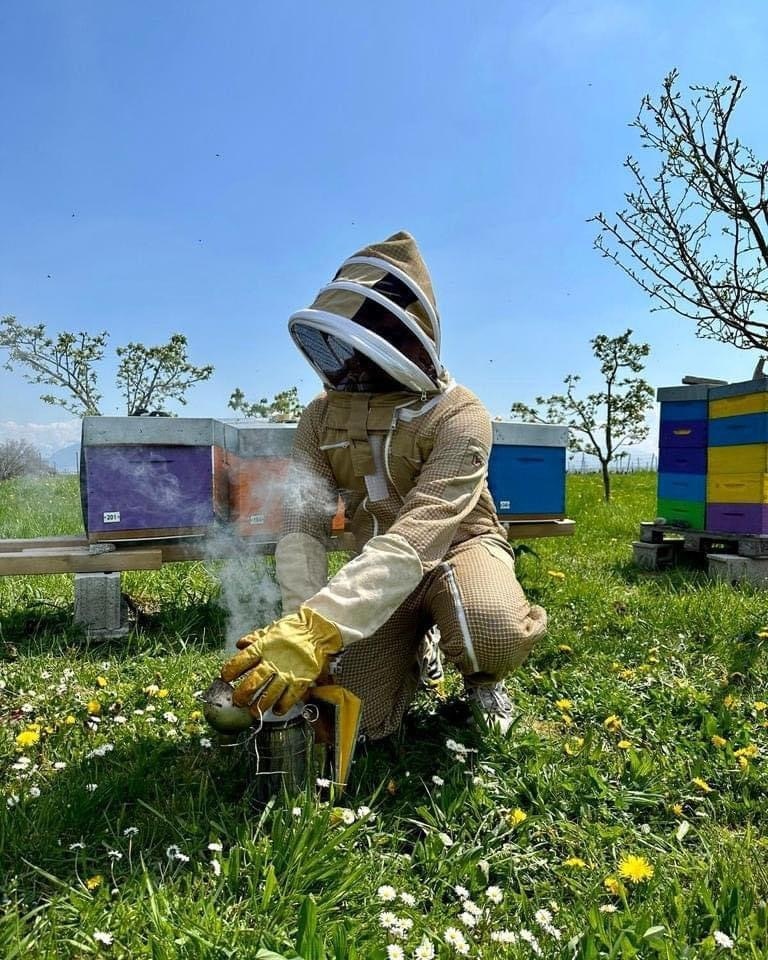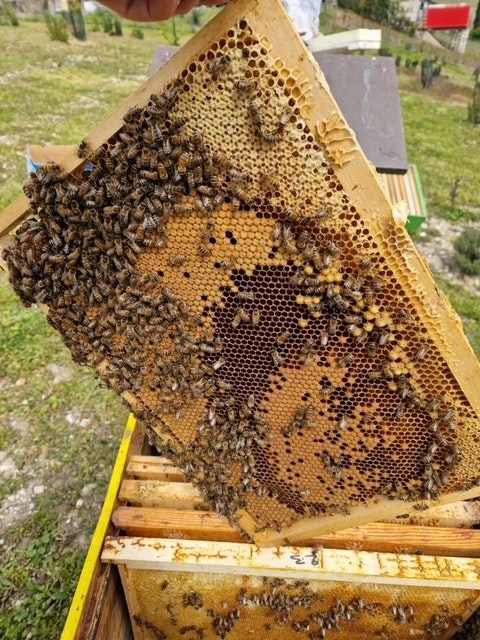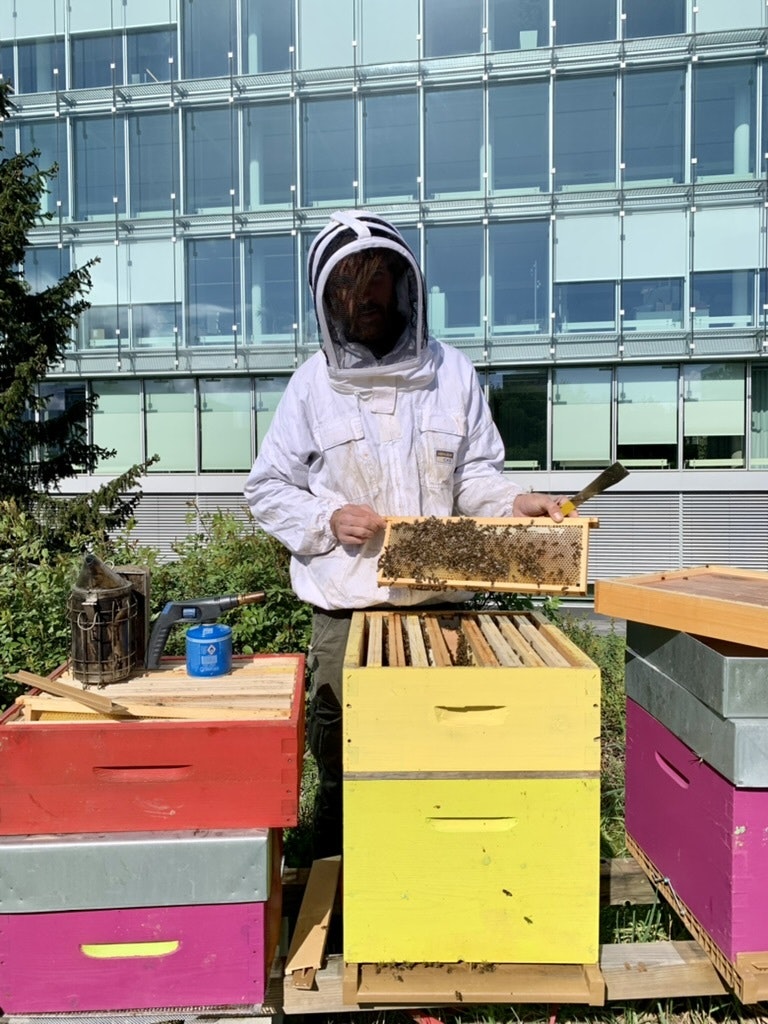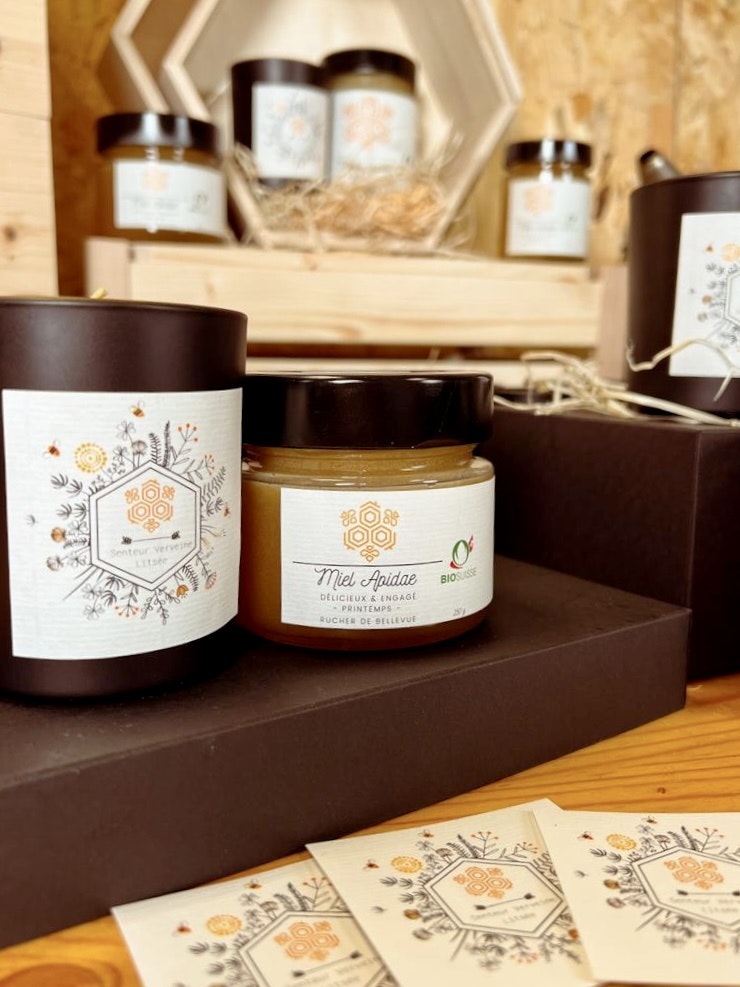LET'S GO
BEEKEEPING’S ESSENTIAL MESSAGE
On a Tuesday morning in late April, an air of excitement filled the room as the BIRD welcomed Tanguy Coustaline, a passionate beekeeper who graced our audience with his fervour for all things bees. Here is the essence of the moment.
Tanguy started diverting from his corporate career to embrace beekeeping a decade ago. However, his professional conversion didn't happen overnight. It took him eight years volunteering and two years obtaining a federal certificate before becoming a full-time professional beekeeper. But it was worth the effort since he now wakes up every morning with a sense of accomplishment and a solid reconnection to nature.
Tanguy, today the Director of the Swiss non-profit organisation Apidae and beekeeper of the BIRD’s three hives, came that Tuesday morning to raise our awareness about the crucial role of bees in maintaining biodiversity, with the same unwavering energy.
SOUNDING THE ALARM
When we think of bees, above all, the image of a honey-producing bee comes to mind. However, there are in Switzerland around 615 species of bees in total, all of which are equally important as honey bees. Tanguy explained that these bees are often ignored even though they are the guardians of biodiversity. They are essential pollinators, and without them, our planet's overall well-being could be significantly impacted.
" Bees are essential for our ecosystem and biodiversity, yet they are quietly but surely disappearing ”, explained the expert.
Yet, the statistics are alarming: hundreds of bee species are confronting a grim future. Their habitats are threatened by human activity and environmental changes. Land overexploitation, pollution, climate change and invasive species are among the factors contributing to this fast decline.
According to expert Marylaure de La Harpe, in charge of botanical species conservation for the Canton of Graubünden, Switzerland has lost 95% of its meadows and dry pastures in over a century. This loss is all the more worrying given that 80% of the flowering plants and 35% of agricultural production depend on insect pollination.
Since bees' fate is closely intertwined with the health of entire ecosystems, their decline directly threatens global food security and the stability of natural habitats, highlighting the urgent need for more robust global conservation efforts.
A BEACON OF HOPE
Several commendable initiatives are underway in Europe to combat bee decline and revitalise pollinator populations. Cities are not left out in this race against time. Bees can paradoxically find within towns an environment rich in floral diversity thanks to the parks and gardens that bloom from spring to autumn. This is why the Geneva authorities are doing their utmost to keep their parks and flowerbeds in bloom.
With such efforts to green urban spaces, urban beekeeping emerges as a promising avenue. Rooftop gardens and community apiaries can help support bee populations and raise awareness about the importance of conservation and sustainable living. One single hive contains over 50,000 bees. Over summer, they can pollinate an area of 700 hectares in our direct environment - the equivalent of 1,000 football pitches! Such figures illustrate urban beekeeping's tangible and measurable impact on our ecosystems, making it accessible to nearly everyone.
“ There is still time to revive a world where bees and biodiversity can thrive.” - Tanguy Coustaline - Director of Apidae
BIRD’S BEEHIVES
At the BIRD, we've also embraced urban beekeeping. We take great pride in offering a sanctuary for pollinators, and it is certainly a delight, too, to harvest a bountiful harvest of honey at the season's end.
Three hives have found a home in our green spaces. They provide shelter for three colonies of approximately 150,000 bees in Blandonnet, an area of Vernier, that despite its urban density, boasts enough green spaces for pollinators.
This project was made possible thanks to the support of Apidae. The organisation's multifaceted approach to urban beekeeping includes education, advocacy, and hands-on beekeeping, which involve lovingly tending to the hundreds of hives in their care and —to many's delights—harvesting the bees' honey.
INSPIRING COLLECTIVE COMMITMENT
During our April Breakfast Talk, Tanguy's devotion to the bees, his expertise, and his sensible approach to, at times, rather grave subjects inspired our audience to see urban landscapes in a new light and imagine concrete ways to help restore biodiversity.
Individuals and businesses can contribute to bee conservation efforts in various ways, from supporting local beekeeping initiatives to recalibrating their daily routines. Tanguy’s powerful presentation was a reminder that we can all contribute to a world where bees and biodiversity can thrive.
Follow and support Apidae
You too can adopt a beehive! Learn how



